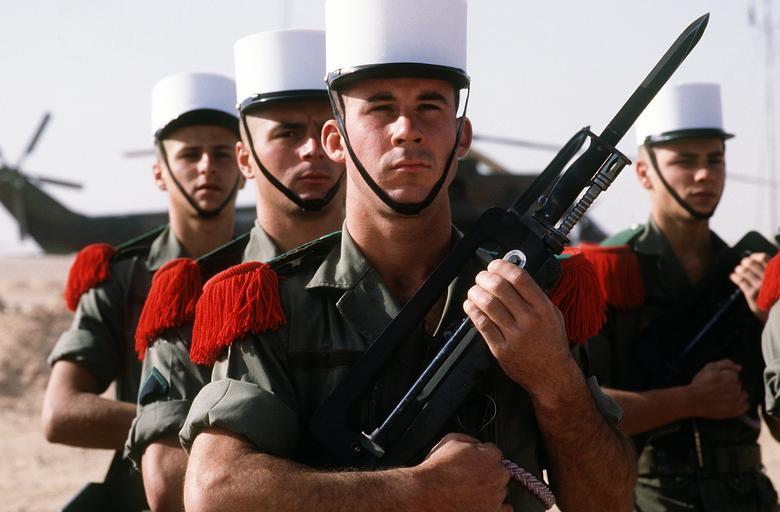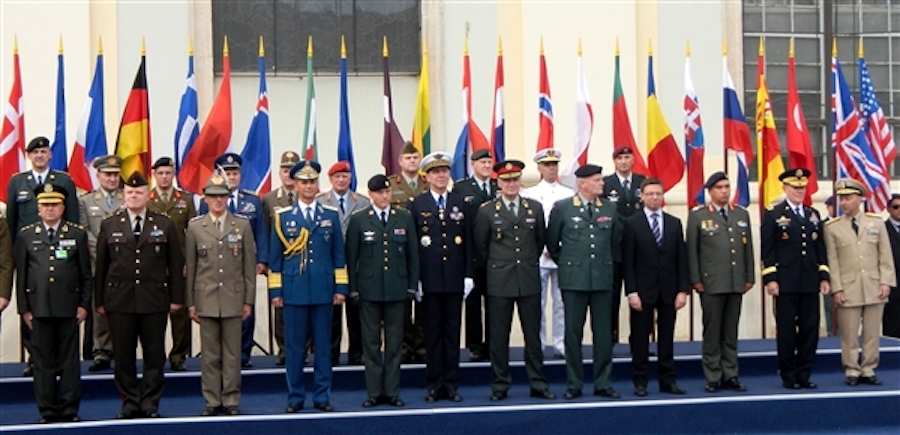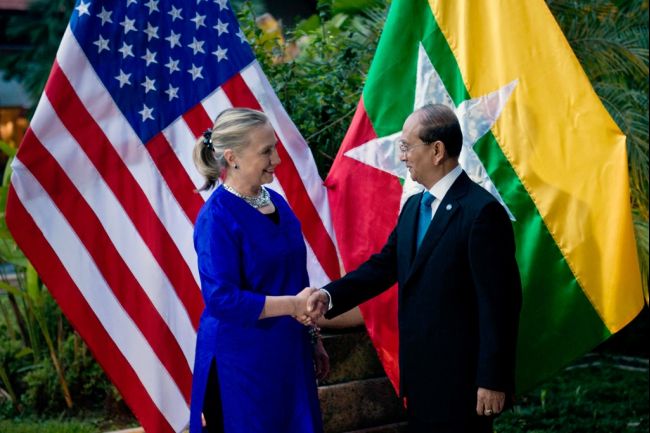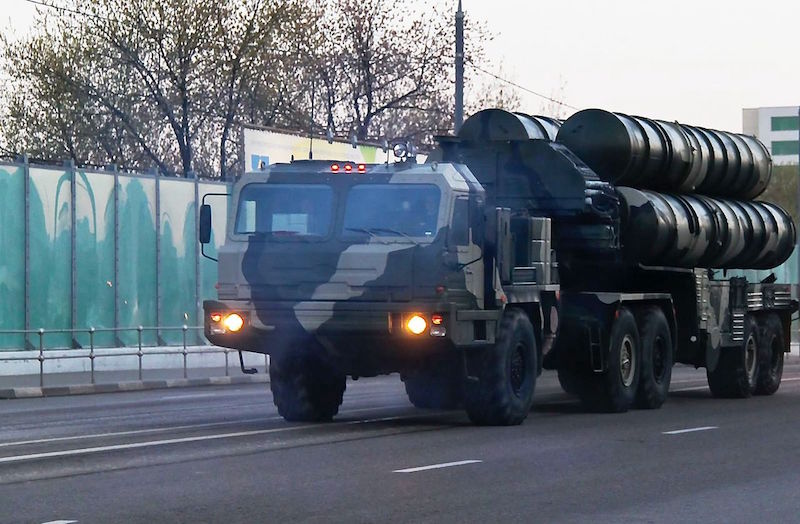In 1851, a French physicist named Foucault assembled the world’s first pendulum to show how the Earth spins on its axis. Swinging back and forth from one end to the other – the impressive 62 pound iron ball at the end of a long wire hanging in the Panthéon in Paris may serve to represent the temperamental nature of certain aspects of French society. Socialist Presidents in France tend to follow conservative ones – as conservative trends get disrupted by snaps of progressive rebellion, and vice versa. Military policy tends to go through its own periodic transformation: from focusing on peacekeeping in the 1980’s, to counterterrorism in recent years, to state-on-state conflict looking ahead to 2030. However, one constant is that the military establishment is meant to stay out of politics.
This practice of keeping the military out of politics is a long-standing tradition in France. Nicknamed La Grande Muette, or the Great Mute, the French military, and its relationship with civil society tends to be governed by three key principles: “loyalty to the republic, respect for the government, and obedience to the law.” In practice, this translates into a military establishment that is famously and fiercely apolitical.
It is for this reason that two open letters addressed to the sitting French government in the past month have raised so much concern. The letters, both published in a far-right magazine, scold the current government for making concessions to Islamic extremism to the detriment of Western “civilizational values.” They go on to warn of the “disintegration” of France and of a brewing civil war. Accusing the government of “cowardice, deceit, perversion,” the second letter was published anonymously but supposedly written by active military members who served, or are serving, in French missions in Mali, Afghanistan, and even within France. While proponents of the letter claim it has over 160,000 signatories, the letter remains anonymous, and therefore, the actual level of support cannot be confirmed.
More shocking was the first letter, released on April 21st. Ominously coinciding with the 60th anniversary of an attempted right-wing military coup aimed at deposing then-President De Gaulle, this letter was signed by a mixture of active military personnel, including retired and semi-retired officers and generals. Warning that France is in peril – citing the murder of Samuel Paty, and calling for the government to have the “courage” to act before a civil war erupts – this letter caused a wave of reactions across the world, unnerving France’s allies and its citizens.
The backlash from France’s government and military establishment was swift. France’s Minister of the Armed Forces, Florence Parly, said those who signed the letters that are in the military would be sanctioned, citing that they had violated the two “immutable principles” governing the military’s relationship with politics: “neutrality and loyalty.” The armed forces’ Chief of Staff, General François Lecointre concurred – stating that those military members had broken their “obligation of discretion” and if they wished to express their political opinions, they should leave the military so they could “freely express their ideas and convictions.”
Contrary to the government’s furious reaction to the letters, the most realistic challenger to current President Macron’s government in next year’s election, Marine LePen – unabashedly nativist and the de-facto leader of the far right movement in France – welcomed both letters, inviting their authors and signatories to join in her fight “for France.”
One survey, whose methodology admittedly has come into question, suggests that a majority of people in France support the open letters in some way. But whether these open letters are representative of opinions held in French society broadly, as their authors claim to be the case, can only be determined by the election. More specific to security matters, these letters raise important questions surrounding the level of penetration of these views within France’s military. If talk of military coups and civil wars is common within the Great Mute, shouldn’t France worry?
Many contend that the threat of a coup, and of far-right extremism in the military, is overblown. Jean Guisnel, a journalist focusing on defence and security cites that more than half of the generals who signed the first letter are over 80 years old and are “has-beens” on the “margins of the defence world.” Another analyst, Jean-Yves Camus agrees – saying that there are no military “heavyweights” on the list of signatories. While it is generally known that members of the military in France tend to lean right ideologically, these experts downplay the presence of far-right putschist extremism in the French military. As does General Lecointre, who reiterates that “the army is republican, it is not politicised,” maintaining that the views expressed in the letters are not representative of the military establishment at large.
These points taken, the now infamous two open letters represent just the latest episode where a NATO member State has had members of its military associated with far-right extremism. Last year in Germany, an AK-47, 6,000 rounds of ammunition, explosives, and Nazi paraphernalia were discovered in the illegal possession of an operator within their special forces. German counter-intelligence investigated 843 cases of suspected far right extremism in 2020 alone, including one case where serving military members were reported as having used a Nazi salute at a social gathering. In Spain, it emerged in December 2020 that a group of high ranking retired air force officers had discussed the murder of supporters of Catalan independence, saying that “for them to die, 26 million bullets are needed.” This same group referred to fascist dictator Francisco Franco as “the irreplaceable one.” An investigation into the incident has since been dropped. In Canada, a Winnipeg Free Press reporter went undercover in 2019, posing as a white nationalist. His investigation exposed the concerning level of far right infiltration of the Canadian Armed Forces – and the dangers associated with it.
The mere appearance of far-right extremist ideas in men and women in uniform in NATO countries such as the ones listed above is cause for grave concern. At the moment, the expert consensus is that the risk of a coup in France or the wholesale Nazi-fication of the German special forces is remote. That consensus, however, is only as strong as the facts that support it at this present moment – facts that change with every new incident, pointing towards a disturbing new trend. If action is not taken now, within five to ten years, these dangerous and violent views may embed themselves solidly in the military establishment of these democratic countries. The consequences of inaction to this threat, and that subsequent outcome, cannot be overstated.
Photo: French Foreign Legion (2017), by Pixabay via Free-Image.com. Public Domain.
Disclaimer: Any views or opinions expressed in articles are solely those of the authors and do not necessarily represent the views of the NATO Association of Canada.




